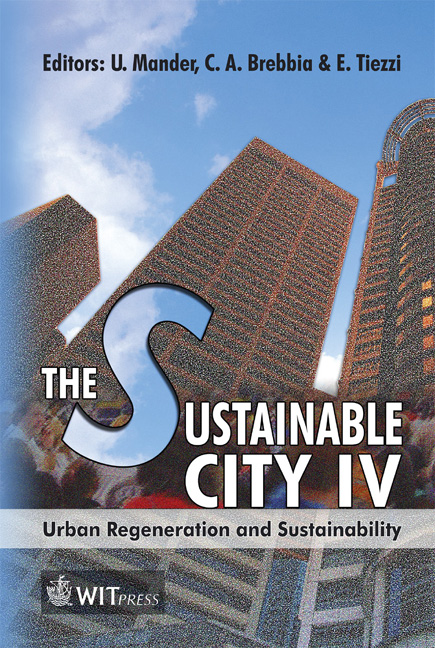International Assessment Of The Environmental Performance Of Housing, And Prospects For Sustainable Cities
Price
Free (open access)
Transaction
Volume
93
Pages
10
Published
2006
Size
321 kb
Paper DOI
10.2495/SC060031
Copyright
WIT Press
Author(s)
R. Horne
Abstract
Ecologically sustainable development (ESD) principles are widely accepted as important components of building standards, urban planning and development. From the incorporation of energy modelling performance into building regulations, to the concepts and principles of Transit Oriented Development, sustainability terminology now litters both international and national policy environments. The logic of aspiring to sustainable urban systems implies that we can define and measure such systems. This paper focuses on the progress to date in housing environmental performance assessment, and compares the energy performance of Australian housing with that in the UK, United States and Canada. The comparison is based on energy ratings of over fifty house designs currently being used which comply with regulatory requirements in the host countries. Issues in design of both the buildings and the assessment tool used are highlighted, and the results of this large Australian Government-funded study are presented. Analysis allows conclusions to be drawn on the reasons for wide variations in house energy (and environmental) performance, and the implications for sustainable cities. A review of design guides and assessment tools aimed at the building and urban scales is also undertaken, including the prospects for new Australian building assessment tools such as AccuRate, BASIX and the Australian Green Building Council’s ‘Green Star’ suite of tools. International comparisons are drawn, and critical analysis is undertaken of the limitations of such tools. Prospects for the incorporation of ESD principles into the planning and design of sustainable cities are presented. Keywords: sustainability, energy, buildings, urban design, environmental assessment.
Keywords
sustainability, energy, buildings, urban design, environmental assessment.





